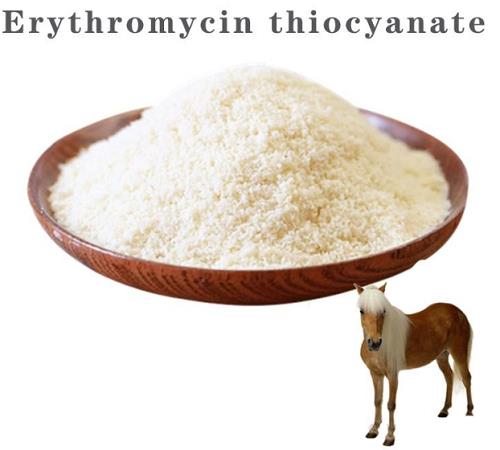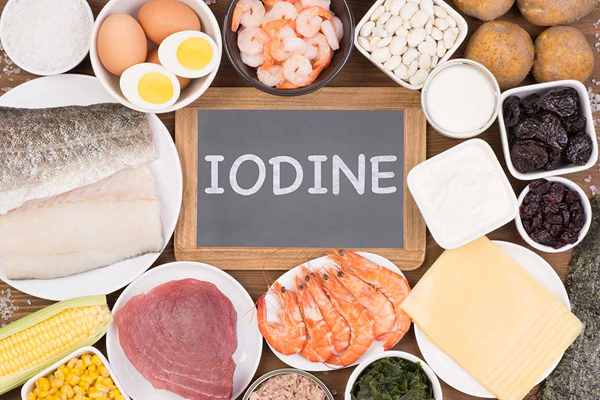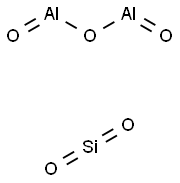Zeolite: the common but fantastic stone
Feb 26,2025
What are zeolites?
Zeolites are hydrated aluminosilicate minerals made from interlinked tetrahedra of alumina (AlO4) and silica (SiO4). In simpler words, they're solids with a relatively open, three-dimensional crystal structure built from the elements aluminum, oxygen, and silicon, with alkali or alkaline-Earth metals (such as sodium, potassium, and magnesium) plus water molecules trapped in the gaps between them. Zeolites form with many different crystalline structures, which have large open pores (sometimes referred to as cavities) in a very regular arrangement and roughly the same size as small molecules. There are about 40 naturally occurring zeolites, forming in both volcanic and sedimentary rocks; according to the US Geological Survey, the most commonly mined forms include chabazite, clinoptilolite, and mordenite. Dozens more artificial, synthetic zeolites (around 150) have been designed for specific purposes, the best known of which are zeolite A (commonly used as a laundry detergent), zeolites X and Y (two different types of faujasites, used for catalytic cracking), and the petroleum catalyst ZSM-5 (a branded name for pentasil-zeolite).[1]
What special properties do zeolites have?
Zeolites are very stable solids that resist the kinds of environmental conditions that challenge many other materials. High temperatures don't bother them because they have relatively high melting points (over 1000°C or 1800°F), and they don't burn. They also resist high pressures, don't disssolve in water or other inorganic solvents, and don't oxidize in the air. They're not believed to cause health problems through, for example, skin contact or inhalation, though in fibrous form, they may have carcinogenic (cancer-causing) effects. Since they're unreactive and based on naturally occurring minerals, they're not believed to have any harmful environmental impacts. Although zeolites might sound incredibly boring, their stable and unreactive nature isn't what makes them useful. The most interesting thing about zeolites is their open, cage-like, "framework" structure and the way it can trap other molecules inside it. This is how water molecules and alkali or alkaline-Earth metal ions (positively charged atoms with too few electrons, sometimes called cations) become a part of zeolite crystals—although they don't necessarily remain there permanently. Zeolites can exchange other positively charged ions for the metal ions originally trapped inside them (technically this is known as cation exchange) and, as Cronstedt found over 250 years ago, they can gain or lose their water molecules very easily too (this is called reversible dehydration). Zeolites have regular openings in them of fixed size, which let small molecules pass straight through but trap larger ones; that's why they're sometimes referred to as molecular sieves. Unlike natural zeolites, which occur in random forms and mixed sizes, synthetic zeolites are manufactured in very precise and uniform sizes (typically from about 1μm to 1mm) to suit a particular application; in other words, they're made a certain size to trap molecules of a certain (smaller) size inside them. Although all zeolites are aluminosilicates, some contain more alumina, while others contain more silica. Alumina-rich zeolites are attracted to polar molecules such as water, while silica-rich zeolites work better with nonpolar molecules.[2]
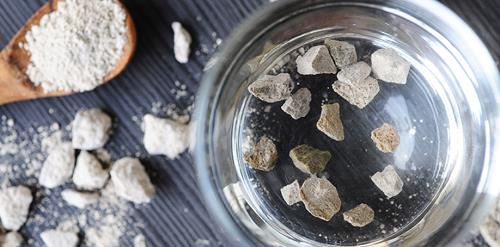
What are zeolites used for?
The cage-like structure of zeolites makes them useful in all sorts of ways. One of the biggest everyday uses for zeolites is in water softeners and water filters. In ion-exchange water softeners, for example, hard water (rich in calcium and magnesium ions) is piped through a column filled with sodium-containing zeolites. The zeolites trap the calcium and magnesium ions and release sodium ions in their place, so the water becomes softer but richer in sodium. Many everyday laundry and dishwasher detergents contain zeolites to remove calcium and magnesium and soften water so they work more effectively.
Two other very common, everyday uses of zeolites are in odor control and pet litter; in both, the porous crystalline structure of the zeolites helps by trapping unwanted liquids and odor molecules. This simple idea, so effective in our homes, has much more important uses outside them: zeolites have proved extremely effective at removing radioactive particles from nuclear waste and cleaning up soils contaminated with toxic heavy metals. (Following the Fukushima nuclear disaster in Japan in 2011, rice farmers spread zeolites on their fields in an attempt to trap any lingering radioactive contaminants.) The many other uses for zeolites including concrete production, soil-conditioners, and animal food.
What are zeolite catalysts?
Another important use for zeolites is as catalysts in drug (pharmaceutical) production and in the petrochemical industry, where they're used in catalytic crackers to break large hydrocarbon molecules into gasoline, diesel, kerosene, waxes and all kinds of other byproducts of petroleum. Again, it's the porous structure of zeolites that proves important. The many pores in a zeolite's open structure are like millions of tiny test tubes where atoms and molecules become trapped and chemical reactions readily take place. Since the pores in a particular zeolite are of a fixed size and shape, zeolite catalysts can work selectively on certain molecules, which is why they're sometimes referred to as shape-selective catalysts (they can select the molecules they work on in other ways beside shape and size, however). Like all catalysts, zeolites are reusable over and over again.
Health Benefits of Zeolite
1. Master Detoxifier Toxins are found everywhere. From the air you breathe, to the food you eat. Over time, these toxins build up in your body and wreak havoc on your health. Never-ending fatigue, brain fog, a weak immune system, and countless health issues are common side effects when these toxins build up. That’s why it’s essential to cleanse your body from toxins. Fortunately, zeolite is the Jedi master of detoxification. All thanks to its unique honeycomb-like crystalline structure. You see, each chamber within zeolite’s honeycomb-like structure has a negative charge. This negative charge attracts positively-charged toxins like lead, mercury, or nitrosamines (1).In many ways, it’s like a magnet for toxins. So, when you take a properly cleansed zeolite supplement, it travels through your body trapping toxins in its “magnetized” honeycomb cage. And since your body doesn’t store zeolite, your body just excretes it once it’s bound to a toxin. That’s why zeolite is exceptionally effective at removing built-up toxins in your body.2. Alkalizes the Body Another well-known benefit of zeolite is its ability to help the body balance pH by providing alkalizing minerals AND supporting kidney function. Many foods (think white bread, rice, or any processed foods) are acid-forming in the body, while most green veggies are alkalizing to the body. Alcohol, pesticides, pollution, and even chronic stress also add to acidity. An overly acidic body shows signs of strain such as headaches, chronic inflammation, mood disorders, persistent fatigue, and much more. Alkalizing minerals help to buffer acid in the body. In a properly-cleansed zeolite, the alkalizing minerals calcium, potassium and magnesium are inside the honeycomb cages. The zeolite cage gives the body the beneficial mineral and takes the bad toxin in exchange.The biggest role zeolite plays in alkalizing the body relates to how it helps the kidneys. Your kidneys maintain your internal pH. Yet many heavy metals impair kidney function (2).Since zeolite can help your body get rid of heavy metals, it supports optimal kidney health, so your kidneys can efficiently balance your body’s pH.3. Strengthens the Immune SystemEvidence suggests that the zeolite clinoptilolite can also bolster and regulate your immune system.This zeolite has specifically been shown to increase T-cell activity and increase the number of macrophages in the body—two cells essential for a healthy immune function.But the immune benefits don’t end there. Heavy metals can suppress your immune system, making your body vulnerable to pathogens and prone to autoimmune issues (2)(3).This means zeolite can both increase the effectiveness of your immune system while simultaneously protecting it from heavy metals.[3]
References
[1] Wu, Q.M.; Luan, H.M. and Xiao, F.S. (2022). "Targeted synthesis of zeolites from calculated interaction between zeolite structure and organic template". National Science Review, 9(9).
[2] Xiao, F.S.; Wu, Q.M. and Wang, C.T. (2023). "Condensed Matter Chemistry in Catalysis by Zeolites". Progress in Chemistry, 35(6), pp.886-903.
[3] Oggiano, G.; Pokimica, B.; Takic, M. (2023). "Beneficial properties of zeolite". Italian Journal of Food Science, 35(1), pp.72-78.
- Related articles
- Related Qustion
- Zeolite: The Versatile Material Shaping Modern Chemistry Jan 9, 2025
Zeolites, a group of unique and naturally occurring minerals, are aluminosilicate compounds characterized by their stable and microporous structures.
- Titanium Silicalite-1 - TS-1 Catalyst Mar 16, 2023
Titanium silicalite-1 is widely used in industry owing to its ability to catalytically epoxidize olefins with hydrogen peroxide (H2O2).
- Characteristic and Uses of Titanium Silicalite-1 Jun 13, 2022
Titanium Silicalite-1, TS-1, was the first framework-substituted redox molecular sieve to be identified. Redox molecular sieves offer a significant advantage over standard heterogenous catalysts; a redox sieve makes it possible to get a sig
Zeolite
1318-02-1You may like
- Zeolite
-
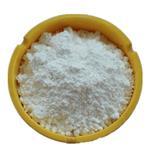
- $6.00 / 25kg
- 2025-02-26
- CAS:1318-02-1
- Min. Order: 1kg
- Purity: 99%
- Supply Ability: 500kg/month
- Zeolite
-
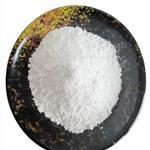
- $6.00 / 1kg
- 2025-02-26
- CAS:1318-02-1
- Min. Order: 1kg
- Purity: More than 99%
- Supply Ability: 2000KG/Month
- Zeolite
-
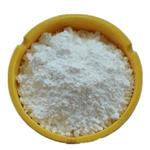
- $6.00 / 1kg
- 2025-02-26
- CAS:1318-02-1
- Min. Order: 1kg
- Purity: 99%
- Supply Ability: 2000KG/Month




